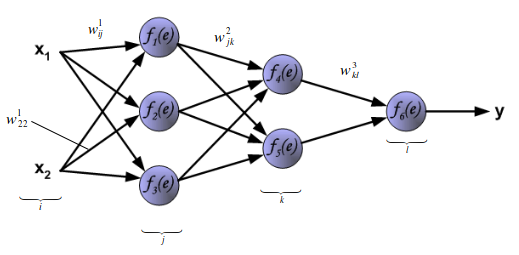I've started to learn about neural networks recently and I can't find the answer to this question.
Let's assume there's a neural network (fig. 1)

if I want to use this to find  what k and l (well there's only one neuron with index l here, but what if there would be more?) should i use in
what k and l (well there's only one neuron with index l here, but what if there would be more?) should i use in  and
and  ?
?
I've also found "other" way of backpropagating it's described here, but I can't understand how they came up with that method from the original equation w -= step * dE/dw.
Sorry if I failed to explain my problem. If something isn't clear please ask in comments.



